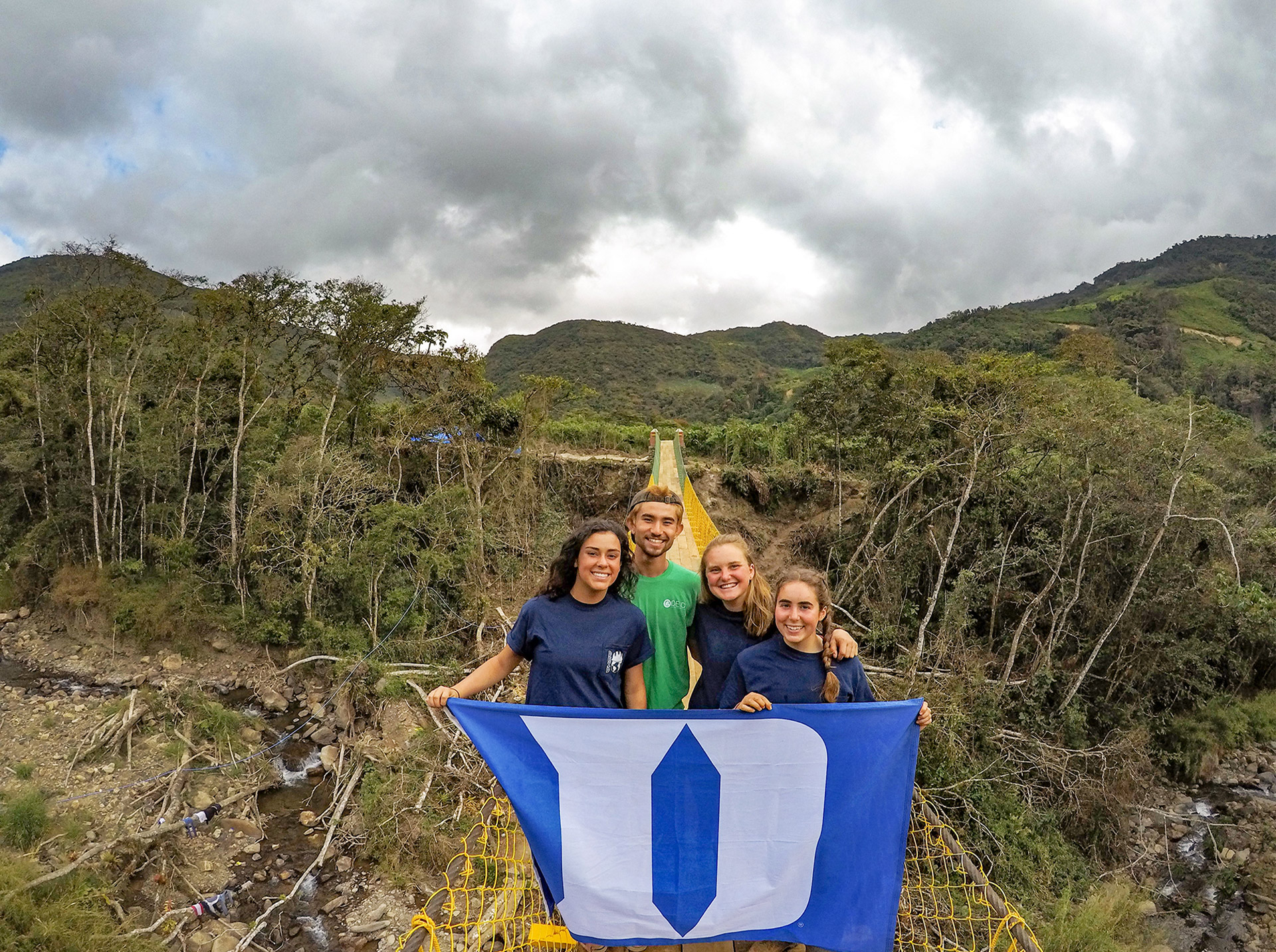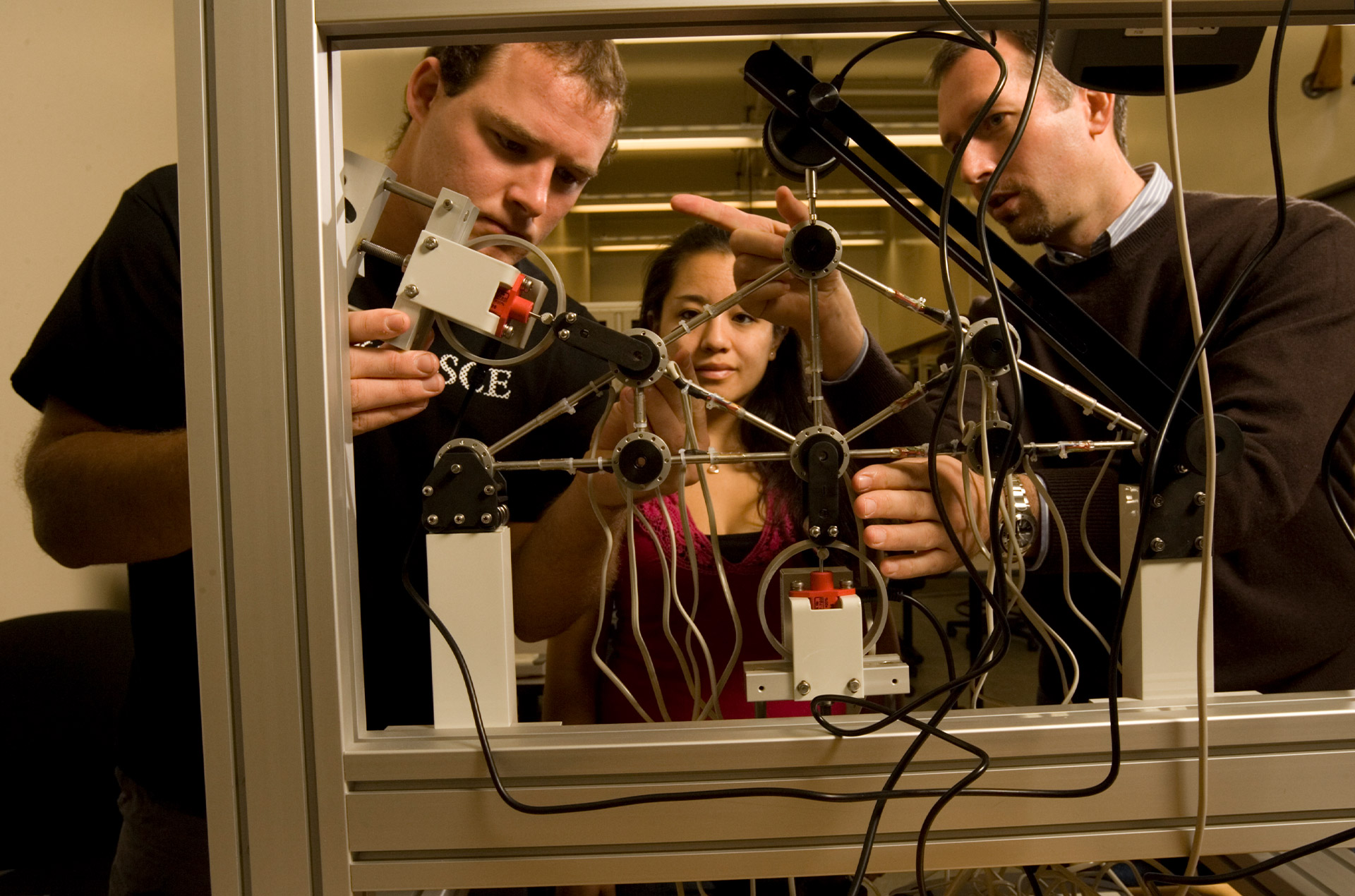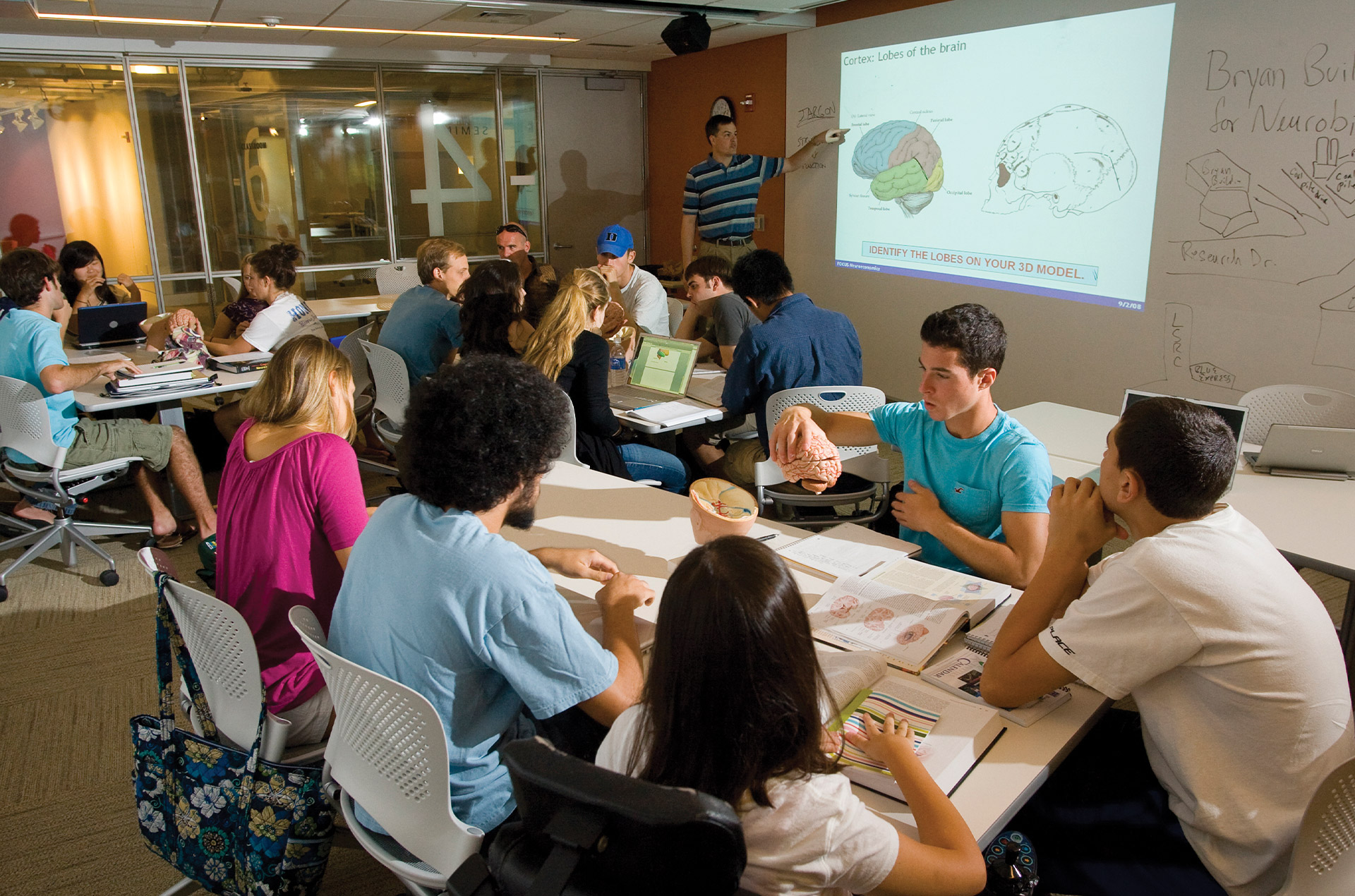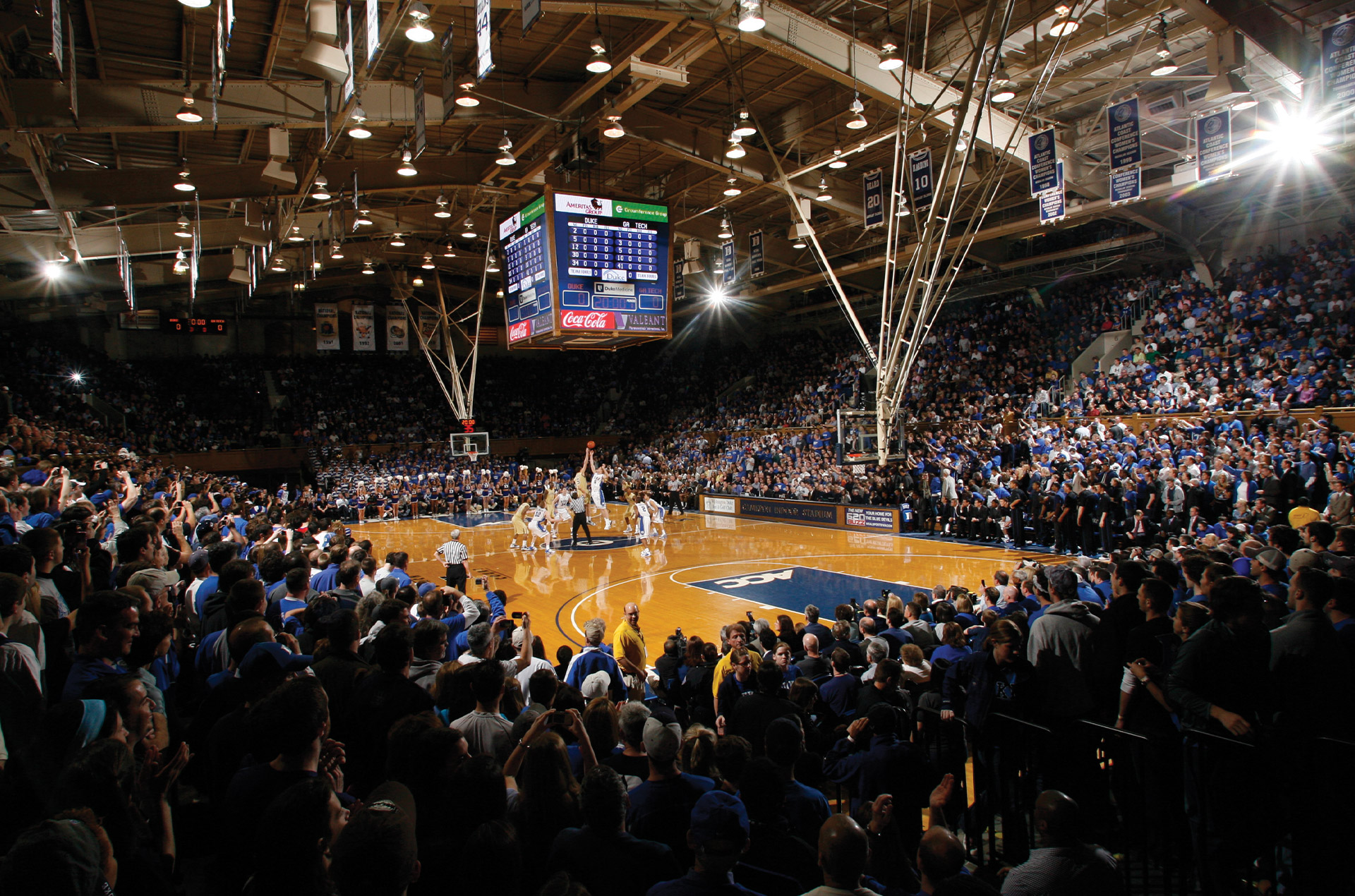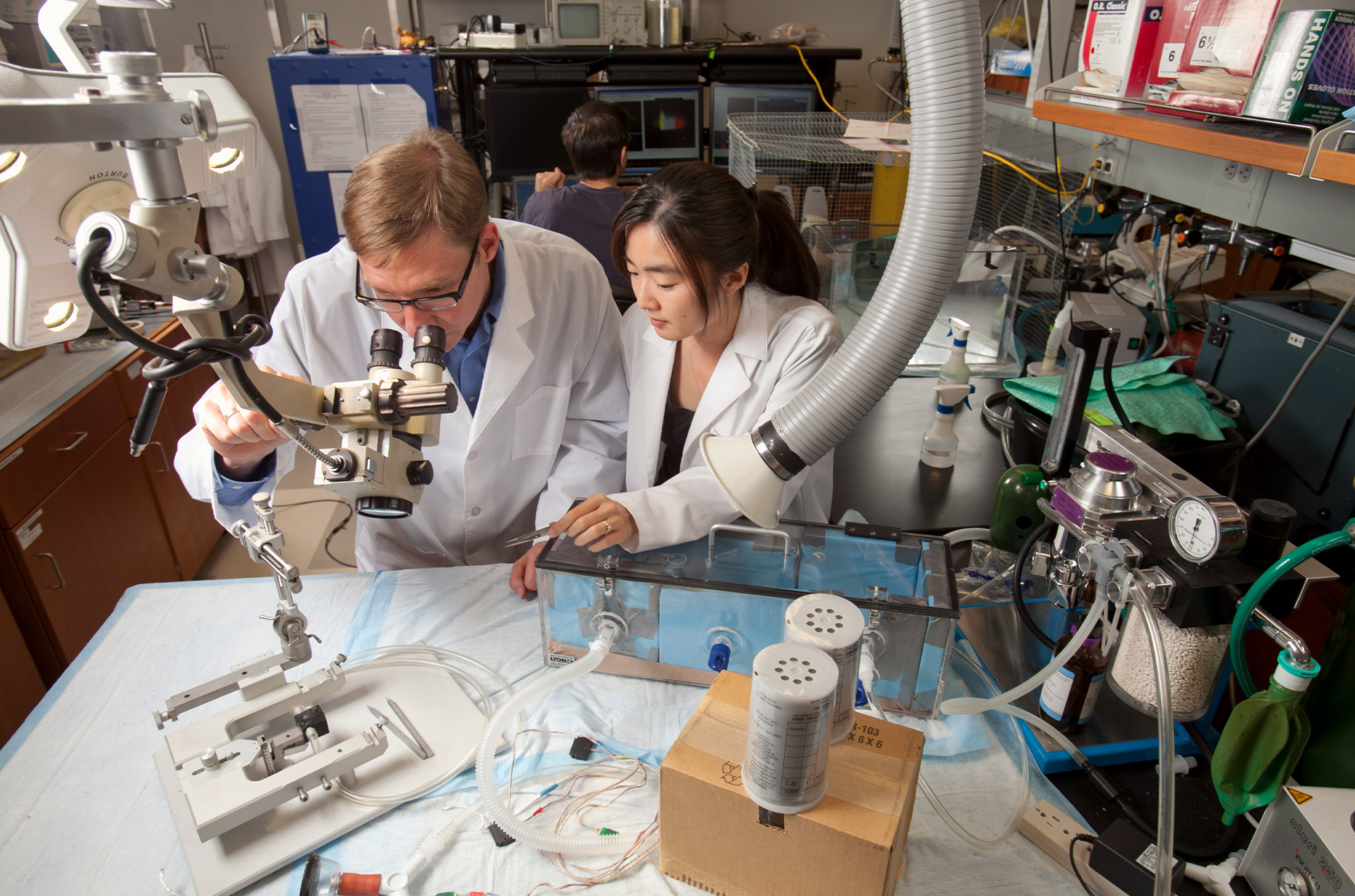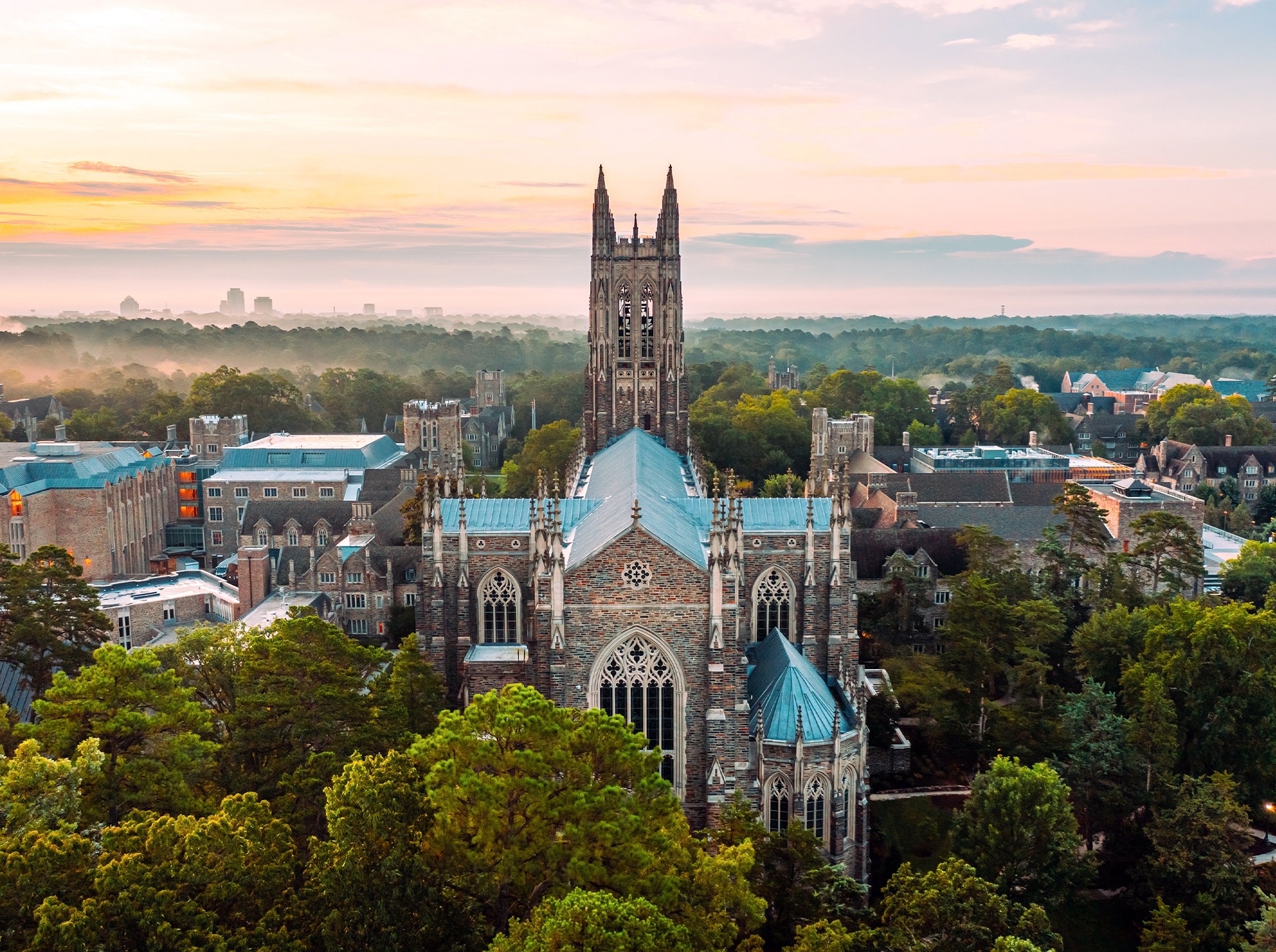Duke University
Durham, NC
Durham, NC
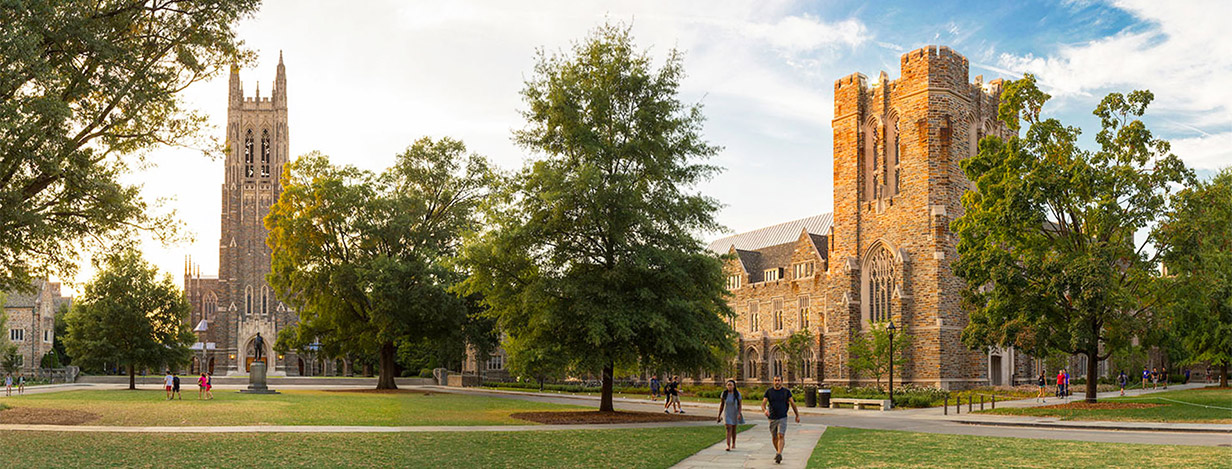
This is Duke
Duke University’s campus is in the heart of one of America’s most fascinating and vibrant areas: the city of Durham in North Carolina’s Research Triangle region. With a unique cultural identity, this midsize city is known for its innovative research, nationally recognized cuisine, rich history, and vibrant arts community. Duke students are as diverse and creative as their community, embracing learning and collaboration through an impressive range of academic, cultural, and service experiences. Students who aspire to a Duke education are ambitious, curious students who pursue challenges, are unafraid to question convention, and value innovation.
With thousands of possible paths through our curriculum, Duke provides a wide variety of intellectual opportunities for our students to develop their minds and enrich themselves as individuals. Undergraduates in both the Trinity College of Arts and Sciences and the Pratt School of Engineering have easy access to faculty, research, and independent studies as well as service and learning opportunities around the world. We encourage students to explore all their interests—more than 80% of Duke students graduate with more than one major, and our multidisciplinary certificates are particularly popular options. Wide-ranging, proactive support services, including pre-professional and career advising, are available to students throughout their undergraduate careers.
Duke students have plenty of space for imagination and exploration through service and study abroad opportunities. DukeEngage—a fully funded, immersive summer service program—allows students to address critical human needs and provide meaningful assistance to communities in the United States and abroad. Each year, students participate in a variety of civic engagement activities such as environmental advocacy, community outreach, global health, education, social entrepreneurship, and more.
A private institution tracing its roots back to 1838, Duke enrolls approximately 6,600 undergraduates and 9,000 graduate and professional students who represent every state and over 80 countries around the world. The University continues to evolve in response to the changing needs of the world its graduates serve.
Life at Duke
Duke’s home campus in Durham—a city of more than 270,000 people—comprises 250+ buildings on more than 8,500 acres, including 7,044 acres of the Duke Forest (see sidebar). West Campus, the location of most of Duke’s academic departments, and East Campus, home to first-year students, are connected via a free bus service.
Duke students often refer to the campus as “the Gothic Wonderland,” a nickname referring to the Collegiate Gothic architecture of West Campus. Much of the campus was designed by Julian Abele, one of the first prominent African American architects. Travel + Leisure has recognized Duke among the “Most Beautiful College Campuses in the United States.”
At Duke, undergraduates are required to live on campus for the first three years, fostering a close-knit campus community. All first-year students live together on East Campus, offering students the opportunity to forge friendships with their class as they adjust to college life. West Campus features a variety of living options for Duke’s upperclassmen.
More than 400 clubs and organizations operate at Duke, spanning all manner of student passions, talents, and cultural identities. These include numerous student government, special-interest, and Greek organizations. Many Duke students pursue service opportunities in Durham and around the world, advancing the University’s mission of “knowledge in the service of society.”
Duke’s legendary Division I athletic teams compete in the Atlantic Coast Conference with support from equally legendary fans. Duke has won national championships in women’s golf (1999, 2002, 2005, 2006, 2007, 2014, 2019), men’s basketball (1991, 1992, 2001, 2010, 2015), men’s lacrosse (2010, 2013, 2014), women’s tennis (2009), and men’s soccer (1986). Duke also fields numerous club and intramural teams.
Financial aid
Duke is committed to a need-blind admission policy for US citizens, permanent residents, and undocumented students, meaning it admits undergraduates without consideration of their families’ ability to pay tuition and other costs. For all admitted students, Duke meets 100% of demonstrated financial need for four years. Over 50% of all Duke students receive some form of financial aid, including need-based, athletic, and merit aid. The average need-based grant is more than $50,000. For more information, visit financialaid.duke.edu.
DUKE LIBRARIES, one of the nation’s top 10 private research library systems, comprise six libraries across East and West Campuses, including the Rubenstein Rare Book & Manuscript Library and the separately administered libraries serving the Schools of Business, Divinity, Law, and Medicine.
SARAH P. DUKE GARDENS are 55 acres of landscaped and woodland gardens in the heart of Duke’s West Campus. Each year, more than 300,000 visitors enjoy the gardens’ five miles of walkways and over 8,000 species and varieties of plants.
THE NASHER MUSEUM OF ART opened in 2005 and is a major center for the arts on campus. The museum serves the University, Research Triangle, and surrounding region with an ambitious schedule of exhibitions and educational programs.
THE MARINE LABORATORY in coastal Beaufort, North Carolina, is a residential campus directed by Duke’s Nicholas School of the Environment. Research is conducted in basic ocean processes, coastal environment management, marine biotechnology, and marine biomedicine.
THE DUKE SMART HOME is a research-based approach to smart living sponsored by the Pratt School of Engineering. Primarily focused on undergraduates, the program encourages students from different academic disciplines to form teams and explore smart ways to use technology in the home.
THE FITZPATRICK CENTER FOR INTERDISCIPLINARY ENGINEERING, MEDICINE, AND APPLIED SCIENCES was built to emphasize interdisciplinary activities and encourage cross-departmental interactions. Research facilities focus on photonics, bioengineering, communications, and materials science and engineering.
DUKE FOREST covers 7,200 acres in separate areas of Durham and nearby counties and serves as a natural outdoor laboratory for Duke and neighboring universities. The forest is used for research, protecting wildlife and rare plant species, and studying timber management practices. It’s also a popular place to walk or run.
THE RICHARD H. BRODHEAD CENTER FOR CAMPUS LIFE, which opened in fall 2016, is a gathering spot for informal meetings, relaxing, and dining.
DUKE LEMUR CENTER is home to the world’s largest colony of endangered primates, including more than 200 lemurs, bush babies, and lorises.
CAMERON INDOOR STADIUM is considered the crown jewel of college basketball. Cameron was renovated in the late 1980s and underwent a series of improvements in 2009 to enhance the game-day experience.
DUKE PERFORMANCES hosts 60–70 professional performing arts events each year, including music, theater, dance, and talks on campus. Many events are held in the Rubenstein Arts Center and Page Auditorium, with others held at Reynolds Industries Theater, Baldwin Auditorium, and the Nelson Music Room.
THE RUBENSTEIN ARTS CENTER is an over 70,000-sq. ft. hub for artistic production at Duke and in the Triangle. The building includes flexible multipurpose studios, seminar classrooms, a makerspace with over a dozen 3D printers, a film screen theater, and a studio theater.
BRYAN CENTER is the hub of student activity. It serves as an expanded student union and contains theaters, restaurants, a coffeehouse, book and merchandise stores, an information desk, a post office, and more.
DUKE CHAPEL, an iconic symbol of the University, is at the center of the Gothic West Campus. Built in 1932, the Chapel features a 210-foot tower housing a 50-bell carillon, which is played at the end of each workday.
MARY LOU WILLIAMS CENTER FOR BLACK CULTURE, established in 1983, features an art gallery, performance spaces, a library, and a lounge. The center sponsors speakers and events on race, ethnicity, and social difference.
PAGE AUDITORIUM is Duke’s largest theater, with a capacity of 1,200 seats. It has been the site of thousands of performances and lectures since its opening in 1930, including speeches by the Reverend Martin Luther King, Jr. and future President John F. Kennedy.
DUKE SPORTS HALL OF FAME showcases all of Duke’s teams in a public museum featuring video, audio, trophy cases, and a theater.
